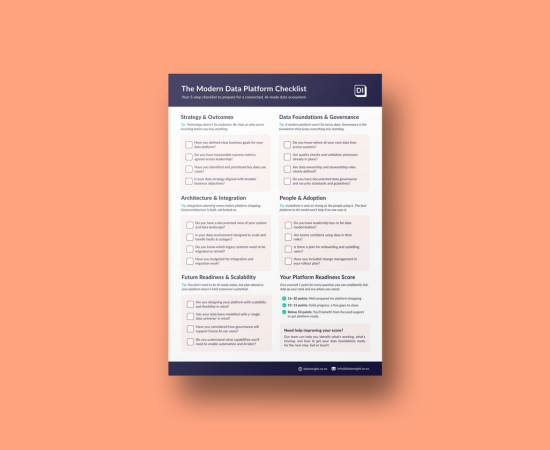Data literacy isn't just a buzzword or a trend; it's a crucial part of any modern business strategy.
.png)
By empowering employees with data skills and fostering a culture that values data-driven decision-making, companies can unlock new opportunities for growth and innovation.
What is Data Literacy?
Just like traditional literacy is essential for communication, data literacy is critical for making informed, data-driven decisions. It involves understanding numbers, recognising patterns, and knowing how to use data effectively.
Data literacy is defined as the ability to read, understand, create, and communicate data as information.
The Many Benefits of Data Literacy
In today's data-driven world, data literacy is not just a competitive advantage but a necessity for businesses aiming to thrive. Understanding data and using it effectively can transform every aspect of an organisation. Here’s how:
1. Enhanced decision-making is one of the most immediate benefits. With data literacy, employees across all levels can ask insightful questions, build robust analytics, and make decisions that are backed by reliable data. In today’s fast-paced and volatile market, the ability to make swift, informed decisions is invaluable, allowing businesses to navigate challenges with confidence.
2. A data-literate culture also drives innovation. By deeply understanding trends, patterns, and anomalies, companies can uncover new opportunities and develop innovative products, services, and processes. This insight keeps businesses ahead of the competition and responsive to changing market demands.
3. Operational efficiency improves significantly when employees are data-literate. They can identify inefficiencies and areas for improvement within business operations, leading to streamlined processes and cost savings. This efficiency translates into better resource management and increased profitability.
4. Finally, increased data utilisation is a key outcome of a data-literate workforce. When employees are skilled in data literacy, they are more likely to integrate data into their daily tasks. This maximises the value derived from the data and boosts overall business performance, ensuring that the organisation remains agile and competitive.
"Data literacy serves as a strategic asset, driving efficiencies, increasing profitability, and boosting innovation, giving organisations a distinct competitive advantage."— MIT Sloan
Building a Data-Driven Culture
To build a data-driven culture, start by understanding your team’s current data skills through surveys or audits. This initial assessment provides insight into existing strengths and areas where development is needed, creating a foundation for your data literacy strategy.
With this understanding, you can implement training programs tailored to the specific needs of each department. By customising education, you ensure that every team member gains the skills necessary to effectively use data in their roles, enhancing their ability to contribute to informed decision-making.
Encourage curiosity and continuous learning. Cultivate an environment where team members feel empowered to explore data and ask questions. By promoting collaboration across departments, you break down silos, allowing teams to share insights and foster a unified approach to problem-solving.
Providing your team with the right tools is equally important. Access to modern data management software and analytics platforms enables employees to handle data efficiently and make informed decisions. With these resources, your team can drive innovation and contribute to the organisation’s success.
Partnering for Success
At Data Insight, our Data Academy training solution handles all the hard stuff, so you don’t have to.
We work with you to assess your team’s current capabilities, identify areas for improvement, and implement customised training programs tailored to your specific business needs.
We help to foster a data-driven culture and equip your teams with the right tools and resources to manage and analyse data effectively.
-------------------------------------------------------------------------------------------------------------------------
Our Data Academy provides structured learning to help teams confidently interpret, apply, and communicate data insights.
This on-site programme supports continuing professional development by helping organisations embed data literacy into their everyday decision-making.
Find more details and get in contact here → Build A Data-Driven Organisation








.png)